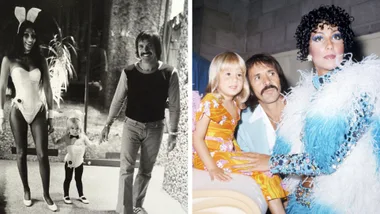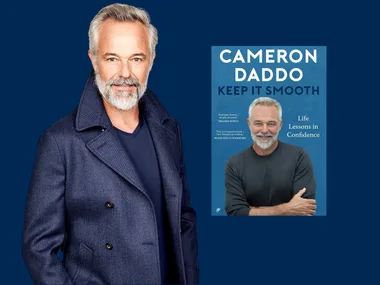The older woman and younger man relationship is no longer a fad, it’s a phenomenon.
Canadian beauty Claudia Opdenkelder, CEO of wildly popular dating site CougarLife.com, was a 39-year-old confirmed bachelorette when she met the love of her life, a man 13 years her junior. A year later, they are engaged. “I have never been happier,” she says.
We chatted with Claudia about the benefits of a relationship with a younger man.
Are younger men different to older men?
Yes they are. We have to thank their mothers — empowered women who have a voice in the family. Some were out there working or bringing up kids on their own. These guys have grown up seeing strong women.
What do you think the appeal of the older woman is for the younger man?
A lot of guys don’t date younger girls anymore because the girls are wondering how much money the guys make or what kind of car they drive. We’re not built that way — we’ve already established ourselves and we don’t need to worry about them being able to support us. We can both just enjoy the ride and see where it goes.
What are the advantages for the ladies?
They have no baggage — you don’t need to hear about their troubled pasts. They have zero ego — you’re not dealing with someone who has a tough time with you making more money than them. They’re so confident — they love that you’re in your sexual prime and what you see is what you get. I think it just happens to work out because the chemistry is there and it’s perfect timing. I’ve told my fiancé, Paul, “If I had met you any sooner, I wouldn’t have been ready for you yet.”
Some women reject younger men, assuming they won’t want children soon enough.
The issue of children is something that needs to be discussed no matter what age — or religion or culture — you are. Something like that is very individual.
When I met my fiancé he was 26, and he was already ready for everything. I told him where I stood and he said, “If you don’t want kids or marriage I am still going to be with you. It’s not worth losing the love of my life over.”
So we moved in together and as time went on we started to discuss marriage, and I thought, “Well, Paul is the best thing that’s ever happened to me, what’s marriage?” So now I’m all about it … I’m planning the wedding! The topic of kids came back up and I’ve told him I’ll think about it.
What about the fear of being left when you start to age?
Well you know what? Men aren’t looking so cute when they get older either — they’re balding and they have man boobs and hair coming out of places it shouldn’t! My fiancé and I joke about it all the time. I tell him, “You need to be worried that I’m not going to trade you in for someone younger.”
As long as you’re a strong, confident woman and you have a real chemistry and a real relationship, getting older is not something that’s going to be the breaking point. It’s never been about the younger woman, they know what they are getting into, so why would they trade you in?
With any relationship you don’t know what you’re going to get. You hope that in the end you’re happy and not jilted, and I think you get that at any age.
So do you believe in true love?
Yes, I believe in true love, but I also believe that you need to go through a lot of fun, sexy relationships before you find the one. As you get into the “dirty thirties” you’re finally comfortable with your body, and you’re able to feel sexy and not feel like you have to make excuses. You embrace yourself.
Paul is one in a million. He’s very mature and worldly and cultured and just all around excellent person. It had to take someone like him to get me to this place.



































































